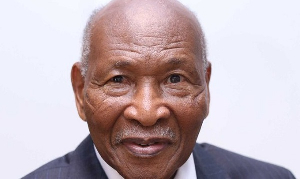- Home - News
- TWI News | TV
- Polls
- Year In Review
- News Archive
- Crime & Punishment
- Politics
- Regional
- Editorial
- Health
- Ghanaians Abroad
- Tabloid
- Africa
- Religion
- Election 2020
- Coronavirus
- News Videos | TV
- Photo Archives
- News Headlines
- Press Release
Editorial News of Wednesday, 7 February 2024
Source: ghanaiantimes.com.gh
Editorial by Ghanaian Times: Uphold commitment to rent assistance scheme!
It is unfortunate that successive governments have spoken volumes about providing housing and not just housing but also affordable one for the citizenry.
However, all of them have failed in this enterprise, leaving a housing deficit to grapple with.
But for the efforts of private house owners, Ghana would have suffered a huge housing deficit, one that would be greatly overwhelming.
While private house owners must be applauded for their efforts to lessen the stress related to securing accommodation, one huge problem with most of these owners is the huge rent advance they charge.
Some of them charge even three years’ advance when the country’s laws allow only six months’ advance as the highest amount to be charged, if the tenancy is longer than six months, otherwise two months’ rent in advance should charged.
However, the Rent Control Department says paying more than six months’ rent in advance does not result in any crime if the payment is a result of an agreement between the tenant and the house owner.
In fact, rent advance is a huge burden for most workers in the country, particularly the young ones.
Therefore, when the government launched the National Rental Assistance Scheme (NRAS) on January 31, 2023 in fulfillment of a campaign promise in the governing party’s 2020 manifesto, it was all joy.
The NRAS is meant to take the undue burden of rent advance payments off the shoulders of all citizens who patronise it.
It has been designed for individuals with a reliable and verifiable source of income from the public and private sectors, as well as self-employed individuals.
To be eligible to join it, the applicant must be a Ghanaian; 18 years and above; possess a valid Ghana Card; must have a verifiable bank statement or mobile money statement; and rent payable must not exceed 30 percent of the household income.
We think the criterion shows some equity, which must be praised.
The scheme is said to increase the affordability of the tenants as only 30 percent of the tenant’s monthly income is all he or she needs to continue the rental agreement into perpetuity.
We think this ‘clause’ must be explained well to clear every doubt in the minds of the people because, in absolute figures, 30 percent of people’s incomes vary.
It is reassuring to hear that the Government is committed to ensuring that every eligible Ghanaian can access the Scheme when needed.
To that end, apart from the initial seed capital, the government has committed to making annual budgetary allocations to support the expansion of the programme to all 16 regions of the country.
So far, GH¢19 million has been disbursed to 1,492 beneficiaries of the scheme.
It is a year now and a party stalwart, in the person of Francis Asenso-Boakye, the Minister of Works and Housing and Member of Parliament for Bantama Constituency in the Ashanti Region, has given a short overview of the scheme.
In part, he writes: “As we mark the first anniversary since its (NRAS’s) inception, let’s seize this occasion to enhance the successes attained thus far and strive to broaden its reach, ensuring that a greater number of deserving Ghanaians can benefit.”
We will always refer to this statement and assess if this commitment is being upheld.











